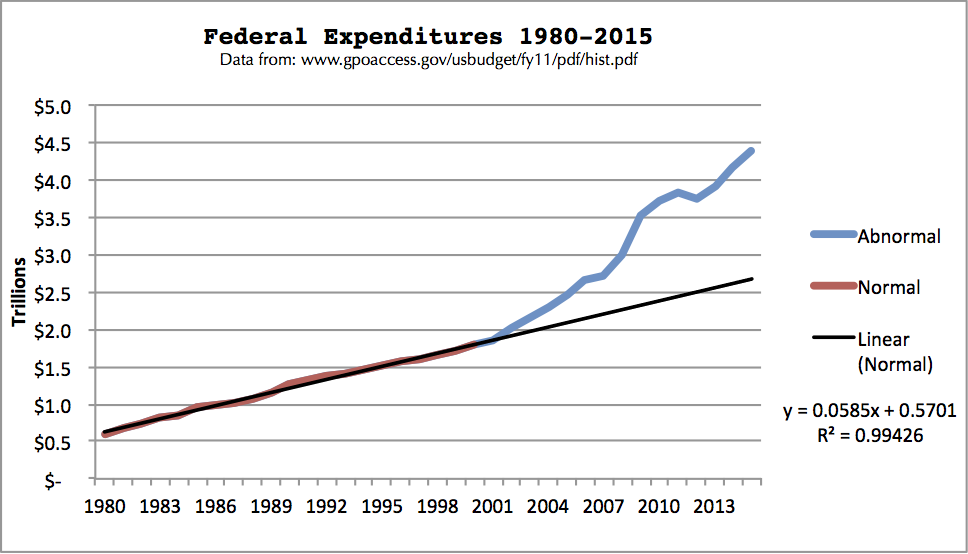Social Security is an inter-generational Ponzi scheme predicated on the assumption that population demographics would remain in a pyramid shape; a large base of workers supporting a tiny apex of retirees (diffuse costs and concentrated benefits). The “baby-boom” generation changed all that: the pyramid now looks like the Washington Monument. In 1950 sixteen workers supported one retiree, today that ratio is a mere 3 to 1. By 2030 it will only be 2 to 1.*
The argument that Social Security is a Ponzi scheme is so common that the Social Security Administration actually has a webpage devoted to debunking this question. Let’s analyze their arguments and see where they get it wrong.
1) A Ponzi scheme must offer extravagant returns. WRONG: Although extravagant returns are typical (otherwise why invest!) they are not necessary for it to be fraudulent. The fraud is that funds are stolen. It is a form of theft by deception, with the underlying deceit (hook) being that reported returns are entirely fictitious because no investment has occurred. The returns aren’t real so their magnitude is irrelevant. The “return” could be 5% and it would still be a Ponzi scheme.
2) A geometric increase of new investors is needed to sustain a Ponzi scheme. WRONG: Or rather only correct if ALL the “returns” are paid in cash. But not all returns are paid in cash. If statements show satisfactory returns then a majority of investors leave their money alone. To cover withdrawal requests it is necessary to procure new investors at a rate proportionate to the ratio of investors withdrawing funds to investors leaving funds alone. That rate is not geometric if the ratio is < 1.
3) Social Security is described as a “pay-as-you-go” program wherein “money from later participants goes to pay the benefits of earlier participants” and that such programs have an inherent vulnerability to “demographic ups and down.” RIGHT: These statements describe attributes that are true for both systems, so I’m not sure how this is supposed to support their argument. Mathematically there is no difference between the two systems: to be sustainable money going out must equal money coming in. It would be more accurate to say the cash flow of a Ponzi scheme functions by employing a pay-as-you-go system. So, if both systems’ sustainability depends on an identical cash flow model then the two systems are functionally equivalent. In other words, a distinction without a difference is no difference.
These are the common characteristics of both systems:
1) Funds are not invested, merely collected by the perpetrator (government)
2) Excess deposited funds (trust fund) are stolen (“borrowed” by government)
3) Required new funds = (excess funds) – (stolen funds) – (funds paid out)
New funds must equal the funds paid out because any excess is pilfered. As long as those values are equivalent both systems are “sustainable.” The problem arises when one of those values changes and equilibrium cannot be restored. A Ponzi scheme could last for forever if the perpetrator had the ability to compel new investors to join. Social Security has endured for so long only because of the government’s ability to legally force more people to participate and extract ever-increasing sums from the participants. At least in a Ponzi scheme the “investors” are not coerced with violence. With Social Security we have no choice. This is very odd indeed. If Social Security is such a wonderful, successful and loved program why is it not optional? Why is participation forced on us at gunpoint?
